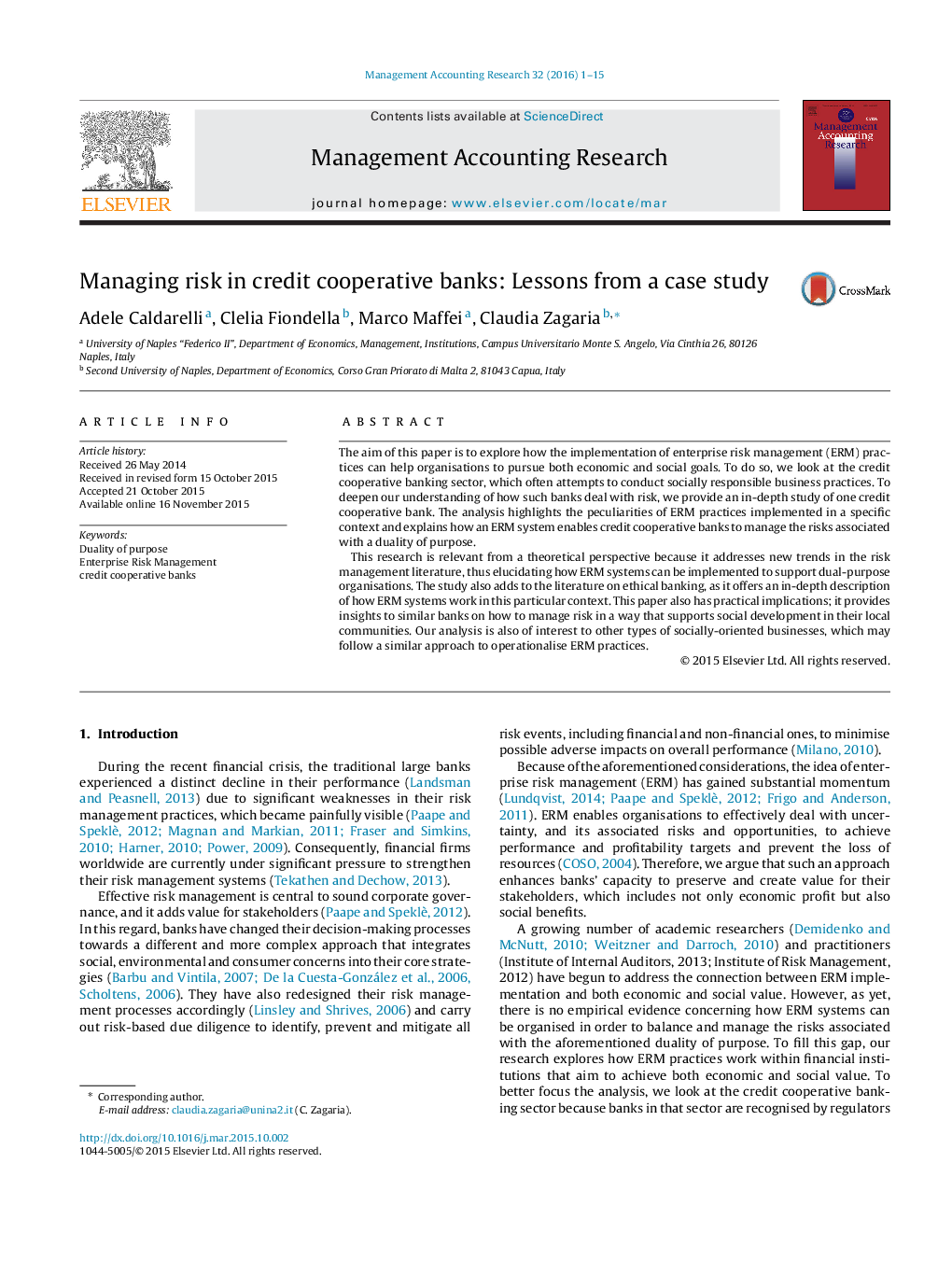| Article ID | Journal | Published Year | Pages | File Type |
|---|---|---|---|---|
| 1002532 | Management Accounting Research | 2016 | 15 Pages |
The aim of this paper is to explore how the implementation of enterprise risk management (ERM) practices can help organisations to pursue both economic and social goals. To do so, we look at the credit cooperative banking sector, which often attempts to conduct socially responsible business practices. To deepen our understanding of how such banks deal with risk, we provide an in-depth study of one credit cooperative bank. The analysis highlights the peculiarities of ERM practices implemented in a specific context and explains how an ERM system enables credit cooperative banks to manage the risks associated with a duality of purpose.This research is relevant from a theoretical perspective because it addresses new trends in the risk management literature, thus elucidating how ERM systems can be implemented to support dual-purpose organisations. The study also adds to the literature on ethical banking, as it offers an in-depth description of how ERM systems work in this particular context. This paper also has practical implications; it provides insights to similar banks on how to manage risk in a way that supports social development in their local communities. Our analysis is also of interest to other types of socially-oriented businesses, which may follow a similar approach to operationalise ERM practices.
